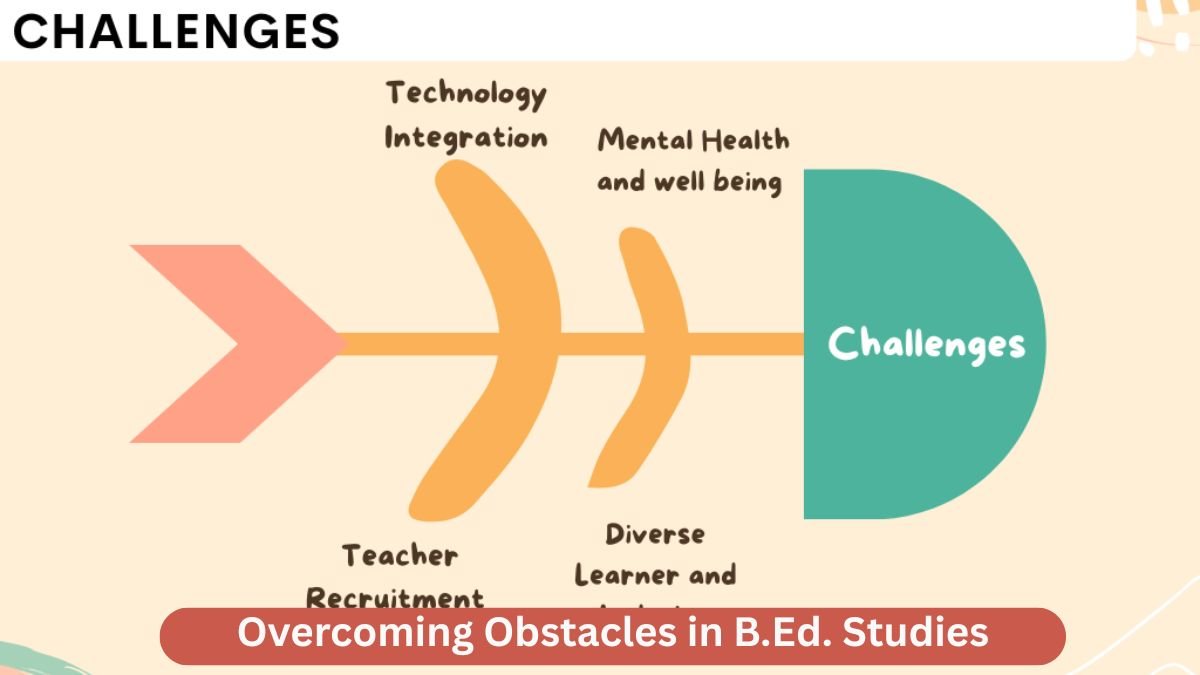Teaching is not just a profession, but the biggest responsibility to give direction to the society. When a student enrolls in B.Ed. (Bachelor of Education) course, his dream is to become the best teacher of tomorrow and improve the lives of children through education. But many types of challenges come in front of him in this journey. These obstacles are sometimes academic, sometimes practical and sometimes mental. If these problems are understood in time and dealt with with the right strategies, then success is certain.
In this article, we will know in detail what are the common difficulties in B.Ed. studies and what are the practical solutions to overcome them.
The challenge of understanding the complexity of the syllabus
The syllabus of B.Ed. is different from the normal degree course and is much more intense. It not only includes the study of the subject, but also includes many activities like teaching methodology, psychology, making lesson plans, micro teaching, and internship.
Solution:
- Focus on time management and read every topic by dividing it into small parts.
- Make notes and revise them so that important points are firmly in the mind.
- Keep taking guidance from seniors and professors.
Difficulty in making lesson plan
The biggest part of B.Ed. is “making lesson plan”. New students often find it difficult to understand how to make the lesson simple and interesting according to the level of children.
Solution:
- Study sample lesson plans in the beginning.
- Try to connect the subject with the daily life of children.
- As experience increases, include creativity, such as pictures, stories, games or activities.
Lack of confidence in the class
During internship or practical, many students get nervous while teaching in front of children. This lack of confidence becomes their biggest challenge.
Solution:
- Practice standing in front of a mirror or take a demo class with friends.
- Adopt a question-answer style to communicate with children.
- Gradually, confidence will grow with experience.
Exam pressure and stress
In B.Ed. course, written exams, projects, assignments and practicals—all add to the pressure.
Solution:
- Make a study schedule and stick to it.
- Read a little bit every day so that the burden does not increase at the time of examination.
- Yoga, meditation and light exercise help in reducing stress.
Challenges of internship
Internship is an important part of B.Ed. Here students get a chance to teach children in a real classroom. But the practical world is different from books. It is not easy to recognize children’s mischief, maintain discipline, and their level of understanding.
Solution:
- Engage children with friendly behavior.
- Learn classroom management techniques—like group activities, creative homework.
- Learn how experienced teachers handle children by watching them.
Lack of digital technology
Smart boards, e-content, and online learning have become common in education today. Many B.Ed. students do not know how to use technology correctly.
Solution:
- Learn to use free platforms like YouTube, MOOCs, and Google Classroom.
- Modify your lessons by creating PPTs and videos.
- Invest time on digital literacy as it is the biggest strength of a future teacher.
Financial pressure
Many students find it difficult to afford B.Ed. fees and other expenses, especially those who come from humble backgrounds.
Solution:
Find out about government scholarship and education loan schemes.
Giving part-time tuitions will not only help you cover your expenses but also give you practice in teaching.
Balance between teaching and personal life
Sometimes B.Ed. studies, practicals and assignments take so much time that personal life gets affected.
Solution:
- Set priorities and divide time properly.
- Create balance with the help of family and friends.
- Practice “smart work”, i.e. more output with more hard work.
Language and communication problems
Many students have difficulty in expressing themselves clearly, especially when they have to adopt simple language at the level of children.
Solution:
- Read books daily and use simple words in conversation.
- While doing activities in the class, you will gradually gain control over language.
- Practice speech, debate and presentation.
Future anxiety
After completing B.Ed., students are often worried about employment prospects and preparation for competitive exams.
Solution:
Don’t just depend on government jobs, but look for opportunities in private schools, coaching institutes and online teaching.
- Prepare for the Teacher Eligibility Test (TET/CTET) right from the beginning.
- Be confident that a skilled teacher is always in demand.
Conclusion
Studying B.Ed. is not easy, but it is a life-changing experience. This course is not just about reading books, but a journey to understand life and society. Every challenge brings an opportunity with it. If students face these obstacles with patience, hard work and positive thinking, they can definitely become an excellent teacher.
Teachers of the future are not just those who impart knowledge, but are also guides to the society. So consider every difficulty of B.Ed. as an opportunity to learn and move ahead with full confidence.
